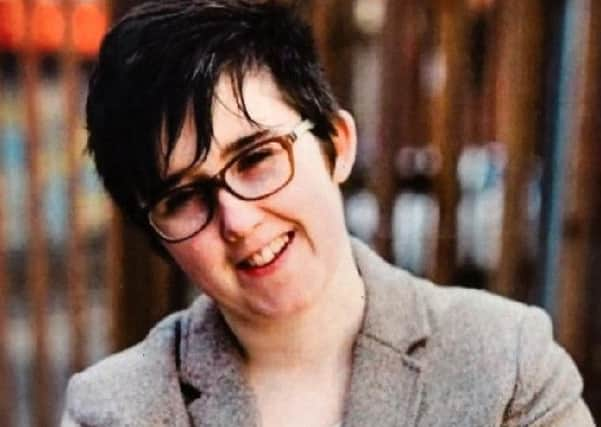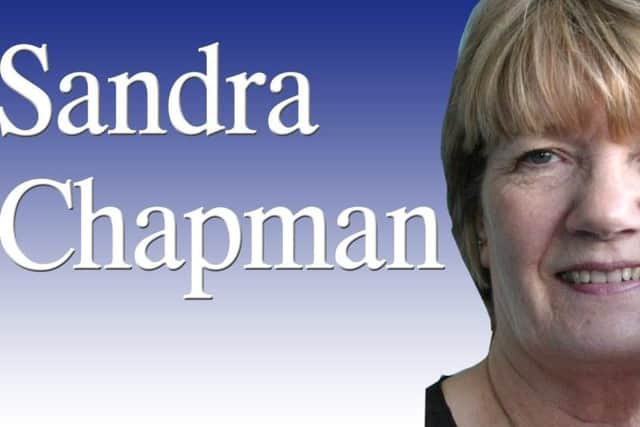Lyra’s death has to be a watershed or we lose hope


A minute later she heard a shot ring out.
Instantly aware the shot had been aimed at the door she had just walked through, what seemed like seconds before, she dived into a side street, listened to the mayhem surrounding the event, and then, when the place was clear, headed for her car.
That woman was me, at the time a journalist with the Belfast Telegraph, five months pregnant, wondering was it even safe to take the car anywhere to get out of the way.


Advertisement
Hide AdAdvertisement
Hide AdSometime earlier that day there had been rumours of an oil lorry which terrorists had planned to place somewhere in that region. In my condition I had decided to move out just in case the rumour was true.
The murder of journalist Lyra McKee brought this bad memory back to me this week. Aged 27 years at the time, I was just two years younger than Lyra, who was shot and killed whilst working in Londonderry on Good Friday last week.
I don’t believe I was a target back in 1973, but the dangers of working in a war zone, which is what we still have here, are still there, catastrophically so on this occasion.
It is truly devastating to know that a young, talented journalist and writer has been wiped out by idiots who, if they are ever caught, could find themselves a mere few months in jail with comfort letters in their pockets and this country no safer than it ever was.
Advertisement
Hide AdAdvertisement
Hide AdLyra will feel no more pain, but think of her family, her beloved partner, Sarah Canning, whose heartbreak was difficult to watch, and her family and friends, stunned by the awfulness of losing this cherished young woman whose writing and observations will be greatly missed by the rest of us in the years to come.
I find it difficult to comprehend that 46 years on since journalists like me and, indeed, every working person in any city or town in the province, risked life and limb each day to go to work, people are still at risk.
That year of 1973 wasn’t a good year.
We thought things couldn’t get worse than the previous year, when we had Bloody Friday, on July 21, in which 11 people lost their lives, but 1973 saw the murder of three British army soldiers, lured to a house on the Antrim Road in Belfast and killed.
In June that year SDLP Stormont Senator Paddy Wilson and his secretary were stabbed to death in a quarry at the Hightown Road, outside the city. Every murder seemed worse than the last one.
Advertisement
Hide AdAdvertisement
Hide AdA new Northern Ireland Assembly was set up in 1973, but life didn’t improve much.
The IRA had another go at my then workplace in September, 1976, when they drove a van loaded with a bomb into the loading bay of the Belfast Telegraph offices, wrecking the place.
The paper still got printed, a measure of the resolve of journalists and staff in those days.
Consultant Psychiatrist Dr Philip McGarry, writing in the News Letter this week, says the New IRA are not ill or deluded, just doing what the IRA did, and he points to the fact that ‘while most people will be appalled that even before Lyra had been buried, 150 associates of the New IRA paraded on Saturday through the centre of Dublin in combat uniform and dark glasses, sadly, only one citizen was seen to protest’.
Advertisement
Hide AdAdvertisement
Hide AdThis is astonishing and it makes me wonder at the nerve of the political hierarchy in the South, who made their way north for Lyra’s funeral service in Belfast Cathedral, yet not a bleep about last Saturday’s obscenity has been heard from Taoiseach Leo Varadkar, Tanaiste Simon Coveney or President Michael D Higgins.
Perhaps Prime Minister Theresa May, who attended the event, had a word in their ear but I doubt it. Lyra’s death has to be a watershed; otherwise, we lose hope.